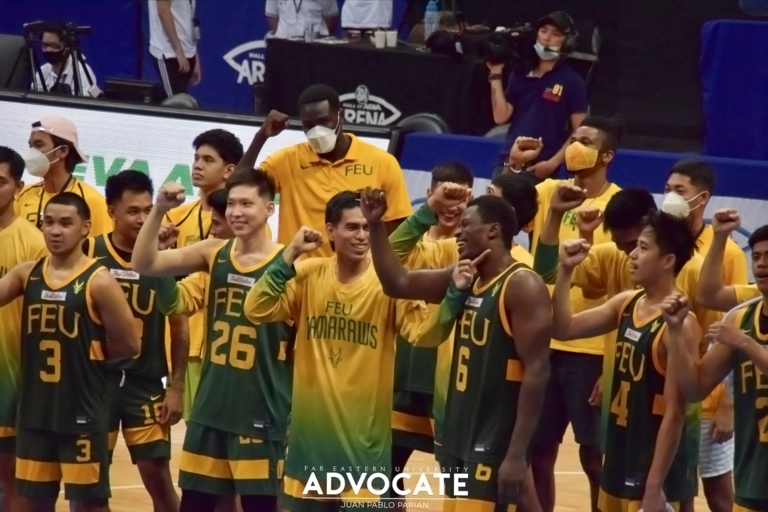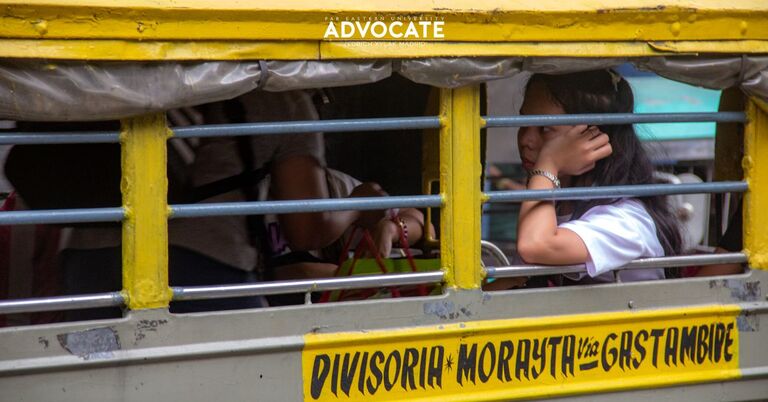
FEU alumna receives SDG 8 Pioneer Award at Icons of Change
- March 24, 2025 16:28
FEU Advocate
November 30, 2021 08:04

Through the tumultuous and triumphant times, the ceaseless ticking of the clock served to remind of the now, the next, and the new. Sailing through the dark chapters of Philippine colonial history and struggle leading up to today’s democratic society, however, holds the answer to the country’s present and future. In commemoration of Bonifacio Day, we ask: where has his fight taken the Philippines?
Andres Bonifacio and the Katipunan
What began with Spanish ships over the Philippine archipelago’s horizons in 1521 was untelling of the upcoming three centuries of oppressive rule under Spanish occupation, and the consequential bouts of resistance against it.
The congregation of about 150 cultural, ethnic, and linguistic groups under a singular banner of authority and religion; invasion and reorganization of communities, and the imposition of foreign laws on the natives have more than drastically steered the course of history towards an inevitable uprising and liberation— in no small part played by National Hero Andres Bonifacio.
Born on November 30, 1863 in Manila, the heart of Spanish operations, Bonifacio was no stranger to both the colonial leadership and the growing dissent among his people who were enslaved by the Spanish government and the Catholic church.
By the late 1880s, Bonifacio had become a fervent nationalist. He had admired Dr. Jose Rizal’s efforts in invoking Filipino nationalism through his literary works, joining the latter’s institution of La Liga Filipina (1892), an organization for the reform movement on equal rights with Spain.
However, Rizal’s arrest on July 6 of the same year led Bonifacio to arrive at a conclusion: freedom lies not in reform, but by force of arms— establishing the Kataastaasan, Kagalanggalangang Katipunan ng mga Anak ng Bayan the next day, aiming to end Spanish rule by a revolution.
With its leader, the Supremo, and a cabinet, the Katipunan set out into the communities to aid, educate, and recruit members while preparing to revolt. Despite a common goal, factions emerged and a power struggle between Bonifacio and Emilio Aguinaldo spelled the death of the former in 1897.
Parallelism of freedom fighters of today to the likes of Katipunan
Decades have passed since the revolution led by the late Andres Bonifacio has ended, yet this marks the beginning of the continuous fight for democracy. Since then, different events have occurred that are alike or took inspiration from Bonifacio's revolutionary movement.
Bonifacio’s death did not go in vain as the Philippines was granted independence in 1946 after the American colonization. Since then, despite the many setbacks and tragedies, the idea of Philippine democracy revolves around being resilient.
The 1986 EDSA People Power Revolution is an example as millions of Filipinos have gathered in hopes to overthrow the tyrannical government presided by Ferdinand Marcos Sr. While Katipunan is a movement to fight Spanish colonization, the two events arrive at one dream and that is to attain freedom for our country. With this, the 1986 revolutionary movement birthed the 1987 Philippine Constitution.
“Ang kabataan ang pag-asa ng bayan,” as the saying goes. The Filipino youth of today’s times have played a significant role in fighting for our democracy. The national data shows that 42% of Filipinos are under 18 years old and will most likely become influential beings in the future. With social media as a powerful platform, the youth are free to speak their minds; moreover, this makes them more politically aware thus, acting upon what’s better for our country.
Freedom post-Bonifacio movement
The path to Philippine independence is long, difficult, and arduous. It is littered with the sacrifice of brave men and women who fought so we may be free. It is because of people like Bonifacio that we enjoy the democracy and freedom we have today. Even when there are setbacks and oppression, Filipinos learn to get back on their feet and remain resilient. Bonifacio paved the way for every Filipino to be a hero in their own ways and fight for what’s right.
In this freedom endowed to the nation by its forefathers, the opportunity and challenge to rise to the occasion, no matter how small, is present. Bonifacio taught us to become a hero ourselves. With this, the opportunity to vote for leaders who care for the future of the Philippines exercises our right and relishes the democracy we have today.
With Philippine independence having been born out of rigorous zeal and fighting spirit, it is of no surprise that the Filipinos of today remain driven in their pursuit of freedom— be it of democratic processes, or will and direction in life.
Schemed, rallied, and built brick-by-brick into existence, the freedom Filipinos have today crosses over into multiple facets of independence, democracy, and identity that are each as valid as the other— truly a luxury afforded by the Father of the Philippine Revolution and the Katipunan.
- Angelic Mizpah Chaste C. Bulanhagui and Jemina Eunice G. De Leon
(Illustration by Shiena Sanchez/ FEU Advocate)
References:
Herrera, D. R. (2015). The Philippines: An Overview of the Colonial Era. https://www.asianstudies.org/publications/eaa/archives/the-philippines-an-overview-of-the-colonial-era/
Ty, R. (2010, December). Indigenous Peoples in the Philippines: Continuing Struggle. https://www.hurights.or.jp/archives/focus/section2/2010/12/indigenous-peoples-in-the-philippines-continuing-struggle.html
National Historic Commission of the Philippines. (2012, September 4). Andres Bonifacio and the Katipunan. https://nhcp.gov.ph/andres-bonifacio-and-the-katipunan/
Guerrero, M. C., Encarnacion, E. N., & Villegas, R. N. (2003, June 16). In Focus: Andres Bonifacio and the 1896 Revolution. https://ncca.gov.ph/about-culture-and-arts/in-focus/andres-bonifacio-and-the-1896-revolution/
Musico, J. (2018, November 30) Filipinos honor ‘Father of Philippine Revolution. https://www.pna.gov.ph/articles/1055414
Conde, C.H. (2018, December 6) A New Weapon Against Press Freedom in the Philippines. https://www.hrw.org/news/2018/12/06/new-weapon-against-press-freedom-philippines
Official Gazette (n.d.) EDSA 30: Introduction. https://mirror.officialgazette.gov.ph/edsa/
Institute for Democracy and Electoral Assistance (2020, December 8) Democracy Talks in Manila - The Role of Youth Voices in Philippine Democracy.









